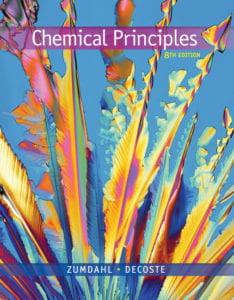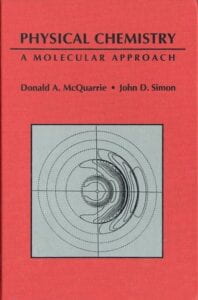Albert Einstein once said, “The most incomprehensible thing about the world is that it is at all comprehensible”. I believe this statement reflects the original curiosities of most physical scientists, including myself. My priority is to stimulate students’ curiosity about natural sciences, by making it easier for them to understand while still providing a broad picture of the field, to prepare them for their future careers in an ever-growing multidisciplinary working environment. Specifically, in chemistry and related courses, students will develop a scientific mindset to approach and solve chemical problems systematically with universal concepts and principles.
Current and Upcoming Courses
- CHEM-SHU 125 Foundations of Chemistry I in Fall 2024 (Shanghai)
- CHEM-GA 2666 Quantum Chemistry and Advanced Statistical Mechanics in Spring 2025 (New York)
Undergraduate Courses
CHEM-SHU 125 Foundations of Chemistry I in Fall 2019, Fall 2020, Fall 2021, Fall 2024.
This course constitutes an introduction to general aspects of chemistry for science, engineering and math majors. Topics include the theories of atomic structure, stoichiometry, properties of gases, kinetic molecular theory, thermodynamics, quantum mechanics, electronic structure of atoms, the periodicity of the elements, chemical bonding, and molecular structure. A particular emphasis is placed on developing physical and chemical intuition through problem-solving. Pre-req or Co-req: MATH-SHU 121 Calculus or MATH-SHU 201 Honors Calculus.
CHEM-SHU 126 Foundations of Chemistry II in Spring 2020, Spring 2021, and Spring 2022.
This course is a continuation of Foundations of Chemistry I. After successful completion of this course, you will have gained a foundational understanding of general chemical principles including intermolecular forces, chemical kinetics, chemical equilibria, acid-base reactions, phase transformations, electrochemistry, transition metals, and radiochemistry. Pre-req: CHEM-SHU 125 Foundations of Chemistry I AND pre-req or co-req: MATH-SHU 121 Calculus or MATH-SHU 201 Honors Calculus.
Required textbook for FOC I and FOC II: Chemical Principles by Steven S. Zumdahl, Donald J. Decoste, Cengage Learning, 8th Edition (2016).

CHEM-SHU 651 Physical Chemistry: Quantum Mechanics & Spectroscopy in Fall 2023
An introduction to quantum mechanics: general principles and applications to important model systems. Covers electronic structure of one- and many-electron atoms, theory of chemical bonding in diatomic and polyatomic molecules. Includes principles and applications of molecular spectroscopy: rotational, vibrational, electronic, and nuclear magnetic resonance. Elements of photochemistry are also included. Prerequisites: PHYS-SHU 12 General Physics II OR PHYS-SHU 93 Foundations of Physics II Honors, and CHEM-SHU 126 Foundations of Chemistry II. Fulfillment: Chemistry additional required course.
Syllabus_pchem_quantum_Fall2023
Required textbook: Physical Chemistry: A Molecular Approach by Donald A. McQuarrie and John D. Simon, University Science Books (1997).

CHEM-SHU 997 Independent Study – Chemistry in Fall 2021 and on
Prerequisite: Foundations of Science I-III (or Physics I&II, Foundations of Chemistry I&II, Foundations of Biology I&II), and a minimum GPA of 3.0 overall and in all science and mathematics courses required for the major, permission of a chemistry faculty member (at NYU-Shanghai, NYU-Abu Dhabi, or NYU-New York) who will act as a sponsor and mentor, and approval of the Director of Undergraduate Studies (DUS) in Chemistry. The faculty mentor must be selected in consultation with the DUS. Offered in the Fall, Spring or Summer. 2 to 4 points per term for a maximum of 4 points. This course aims at engaging students in research. It is designed to offer students an opportunity to observe chemistry research up close and gain hands-on research experience by working as a member in an active research team. Independent Study I and II can be done with the same supervisor or two different supervisors. No lectures will be given. Student researchers are expected to attend and actively participate in lab/supervision meetings. A Proposal for Independent Study form must be filled out, signed by the DUS, and submitted to the Registrar. Requires a written report on the research to be evaluated by the faculty sponsor, with a copy submitted to the DUS and a copy to the Dean of Arts & Sciences.
Prof. Sun welcomes undergraduate students to conduct independent study, but to have a tailored course design for each student, please speak with Prof. Sun to discuss interests and research topics before enrolling. Thanks!
CHEM-SHU 999 Chemistry Undergraduate Research Thesis in Fall 2021 and on
Prerequisites: Independent Study (CHEM-SHU 997 or 998), a minimum GPA of 3.65 overall, a minimum GPA of 3.65 in all science and mathematics courses required for the major, and permission of a faculty sponsor and the Dean of Arts & Sciences. Open to Chemistry majors only. The faculty mentor must be selected in consultation with the Dean of Arts & Sciences. May not be used for the major in chemistry. Offered in the fall, spring, and summer. 2 points. For chemistry majors who have completed at least one semester of laboratory research (CHEM-SHU 997 or 998) and are able to expand this work into a thesis. Requires writing a Thesis (i.e., a full literature search of the subject and a formal written report on the research in publication form), which is defended in front of a committee of three faculty (which includes the faculty sponsor), chosen by the student in consultation with the faculty mentor. (The defense may be a brief oral presentation followed by a question-and-answer session.) The Thesis and defense must be evaluated by the committee, with the cover page of the thesis signed by all committee members, with a copy of the Thesis submitted to the Dean of Arts & Sciences. (It is recommended that the student meets with the faculty committee at least once mid-semester to evaluate and guide the student’s progress on the thesis work.)
Graduate Courses
CHEM-GA 9668 Chemical Dynamics in Spring 2024 by Prof. Xiang Sun
Chemical dynamics provides a theoretical description of reactions, relaxation, and transfer events in molecular and condense-phase systems. The motion of molecules at finite temperature is important to understand chemical reactions in complex systems, especially when Born-Oppenheimer approximation breaks down. In this course, students will be introduced to theoretical and computational approaches to dynamics including classical molecular dynamics, quantum dynamics, rate theories, electronic and energy transfer theories, mixed quantum-classical dynamics, as well as semiclassical dynamics. The environment effects on chemical dynamics are discussed. Path-integral-based formalisms are introduced for treating nuclear quantum effects and theoretical frameworks of ultrafast spectroscopy are also included.
CHEM-GA 9666 Quantum Chemistry and Advanced Statistical Mechanics in Spring 2021 (by Prof. Xiang Sun and Prof. John Zhang) offered in Shanghai
CHEM-GA 2666 Quantum Chemistry and Advanced Statistical Mechanics in Spring 2023 (by Prof. Xiang Sun and Prof. Jutta Rogal) offered in New York
CHEM-GA 2666 Quantum Chemistry and Advanced Statistical Mechanics in Spring 2025 by Prof. Xiang Sun offered in New York
This course is intended to provide a balanced presentation in both quantum chemistry and statistical mechanics with application toward chemistry problems. It is intended for graduate students who already have grasped the fundamental theories of quantum mechanics and basic statistical mechanics. In the first half of the course on quantum chemistry, the contents are organized to contain three main parts: (1) separation of electronic and nuclear wavefunctions, (2) electronic structure theory and (3) quantum theory for nuclear dynamics. The second half of the course covers advanced topics in statistical mechanics, specifically (1) quantum equilibrium statistical mechanics and path integrals, (2) classical time-dependent statistical mechanics, (3) quantum time-dependent statistical mechanics and quantum dynamics, (4) theory of ultrafast spectroscopy, and (5) enhanced sampling methods for generating free energy landscapes. The final score is made of 50% each on two parts of the course with independent final exams or projects for each part.
You must be logged in to post a comment.